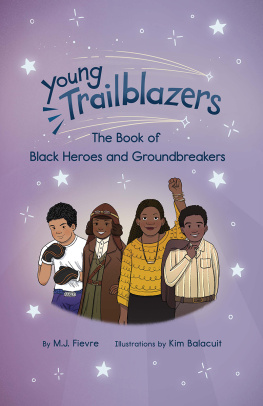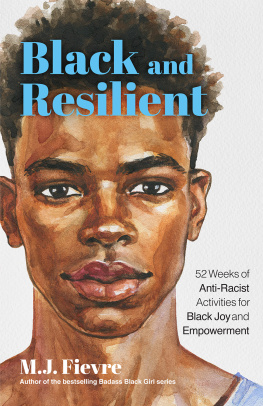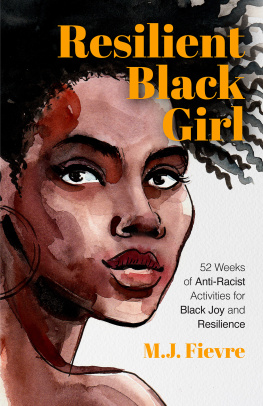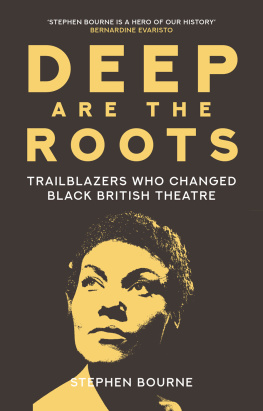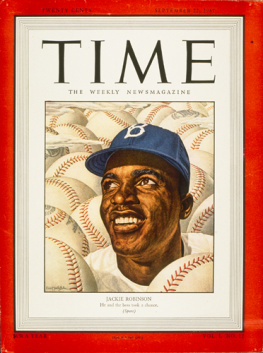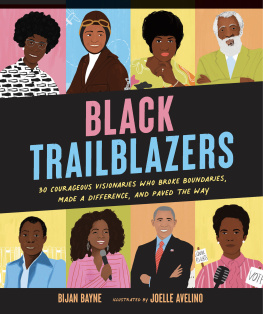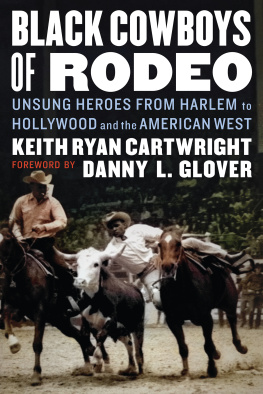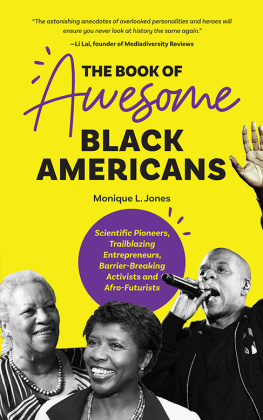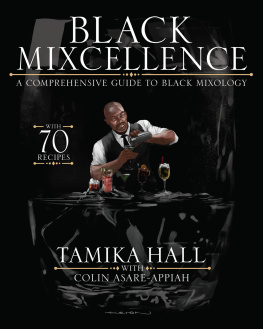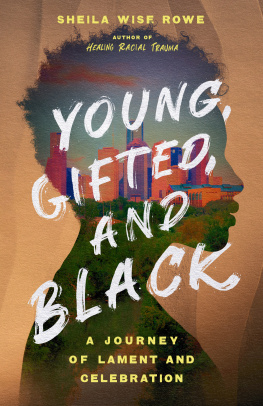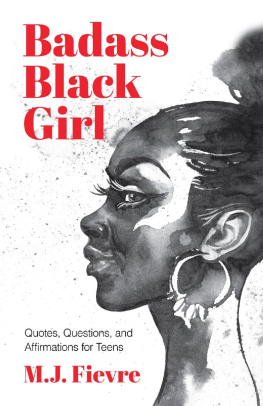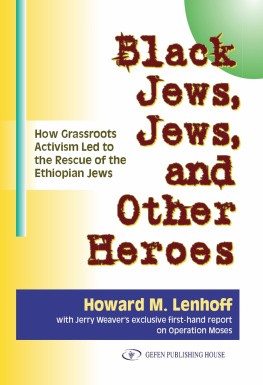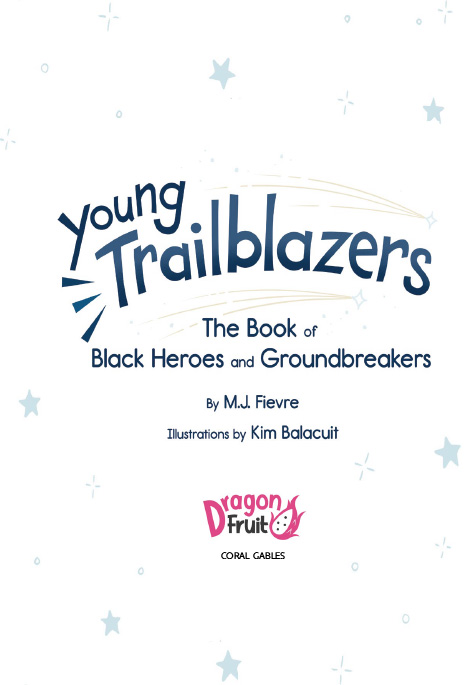
Copyright 2022 by M.J. Fievre and Kim Balacuit.
Published by DragonFruit, an imprint of Mango Publishing Group,
a division of Mango Media Inc.
Cover, illustration, and layout design: Kim Balacuit
Images used under license from Adobe Stock
Mango is an active supporter of authors rights to free speech and artistic expression in their books. The purpose of copyright is to encourage authors to produce exceptional works that enrich our culture and our open society.
Uploading or distributing photos, scans or any content from this book without prior permission is theft of the authors intellectual property. Please honor the authors work as you would your own. Thank you in advance for respecting our authors rights.
For permission requests, please contact the publisher at:
Mango Publishing Group
2850 S Douglas Road, 4th Floor
Coral Gables, FL 33134 USA
For special orders, quantity sales, course adoptions and corporate sales, please email the publisher at or +1.800.509.4887.
Young Trailblazers: The Book of Black Heroes and Groundbreakers
Library of Congress Cataloging-in-Publication number: 2021946712
ISBN: (print) 978-1-64250-782-9 (ebook) 978-1-64250-783-6
BISAC category code JNF025190, JUVENILE NONFICTION / History / United States / Colonial & Revolutionary Periods
Printed in the United States of America

Contents
Heroes and Grou ndbreakers
A merica inherited the strength, courage, wisdom, love, and dignity of our Black heroes and overcomers. We stand on their shouldersthese creators, innovators, and agents of changeand, because of their tremendous struggle, we are strong and can conquer whatever challenges this world hands us.
Let us never forget those who broke the unjust rules society used (and sometimes still uses) to limit our progress, those who fought hard to get us to this moment, those who gave light so others could find the way through d ark times.
Because of them, all of us can hope to walk in the freedom they fought for, and continue to fight for, on o ur behalf.

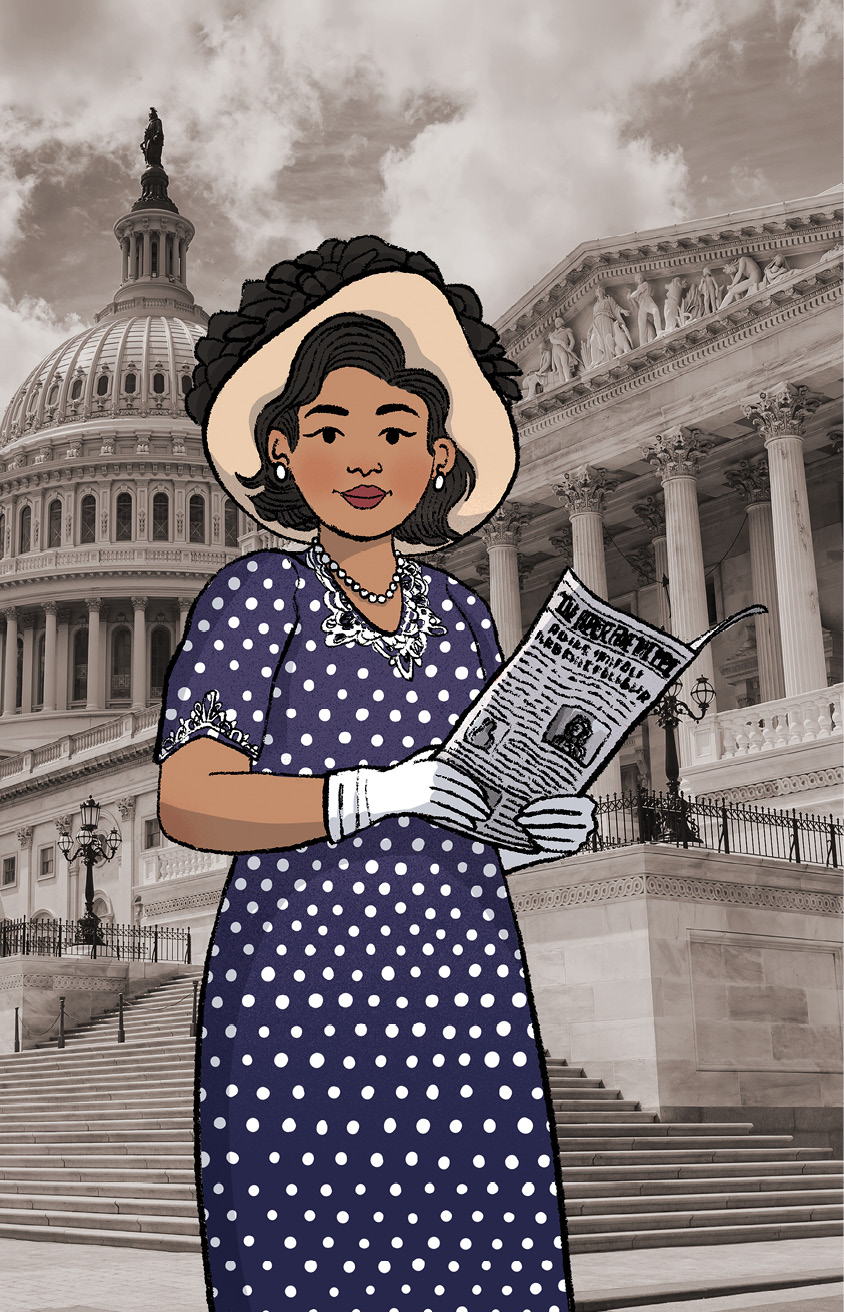
A lice Allison Dunnigan was a journalist, civil rights activist, and author. She was born in 1906 near Russellville, Kentucky . Her father was a sharecropper , and her mother took in laundry to make money. Despite this, her family was not as poor as many of the families surrounding them. They owned their own home. Alice began attending school one day a week when she was four years old and was able to read before she entered the first grade. When she was just thirteen years old, she began writing for a local paper, the Owensboro Enterprise. After she graduated from high school, Alice took a teaching certification course at the Kentucky Normal and Industrial Institute.
Words You S hould Know
A sharecropper is someone who rents a parcel of land from a farmer and pays their rent with a portion of their crops. After the Civil War, many former slaves became sharecroppers on their former owners pl antations.
She taught Kentucky history in the Todd County school system, but Alice noticed that none of the history books included the contributions of Black people, so she included supplemental sheets that she wrote for her students with information about the contributions of Black people in Kentucky. In 1942, during World War II , she answered a call from the federal government for people to take up government jobs and move to Washington, DC. She left Kentucky for a better-paying government job in 1942. Alice worked at a government job from 1942 to 1946 and took night courses at Howard U niversity .
Words You S hould Know
The House of Representatives is one of the two parts of the Congress of the United States. There are currently 435 representatives in the House. They represent districts in their home states and serve a two- year term.
The Senate is one of the two parts of Congress. There are currently one hundred senators serving in the senate. Each senator serves a six-year term. Each state elects two senators to represent it in Congress.
In 1946, the Chicago Defender , a Black-owned newspaper , offered her a position as its Washington correspondent, but she received less pay than her coworkers because she was new to journalism. Alice had to fight hard to get press credentials to cover the House of Representatives and the Senate. Her first application was denied because she wrote for a weekly paper, and the rules at the time only granted press credentials to daily reporters. Six months later, she became the first Black female reporter to earn Congressional press credentials, but it wasnt easy for her. She wasnt allowed into many of the proceedings at the White House because she was Black. President Eisenhower refused to answer her questions at first, and then made her submit her questions in advance because she asked tough questions, often about race. At a senators funeral, she was forced to sit in the servants section to cover the event. In 1947, she was named bureau chief of the Associated Negro Press . She held this position for fourteen years. In 1948, Alice was one of three Black reporters who covered Harry S. Trumans presidential campaign. She paid her own way to follow him on the campaign trail. In 1948, she also became the first Black female White House correspondent , and was the first Black woman elected to the Womens National Press Club. She traveled all over the world as a reporter, to places like Canada, Israel, Mexico, South America, Africa, and the Caribbean. In 1960, Dunnigan left the press to work in the White House for the Kennedy Administration as an education consultant for the presidents Committee on Equal Opportunity . She stayed in the White House through President Johnsons administration, but retired when Richard Nixon was electe d in 1968.
Words You S hould Know
A White House correspondent is a journalist who covers news from the White House and reports on the president. They attend presidential briefings and report on happenings in the Wh ite House.
After her time in the White House, Alice went back to writing, but this time, she wrote her autobiography A Black Womans Experience: From Schoolhouse to White House . She also wrote a book about the history of Black Kentuckians . She di ed in 1983
Here are some wise words to remember Alice by: Without black writers, the world would perhaps never have known of the chicanery, shenanigans, and buffoonery employed by those in high places to keep the black man in his (proverbial) place by relegating him to second-class cit izenship.
A is for Alice
Interes ting Facts
Kentucky
Central Kentucky, home of the bluegrass region of the state, was home to the most slaveholders prior to the Civil War. Kentucky largely remained split between Union and Confederate sympathizers during the war, and never really took part in any of the major battles of the Civil War, choosing to remain neutral. During their slaveholding days, Kentucky slaves grew tobacco and hemp, and were known for their prize livestock. Kentucky was the fifteenth state admitted to the Union when it split off from Virgini a in 1792.

